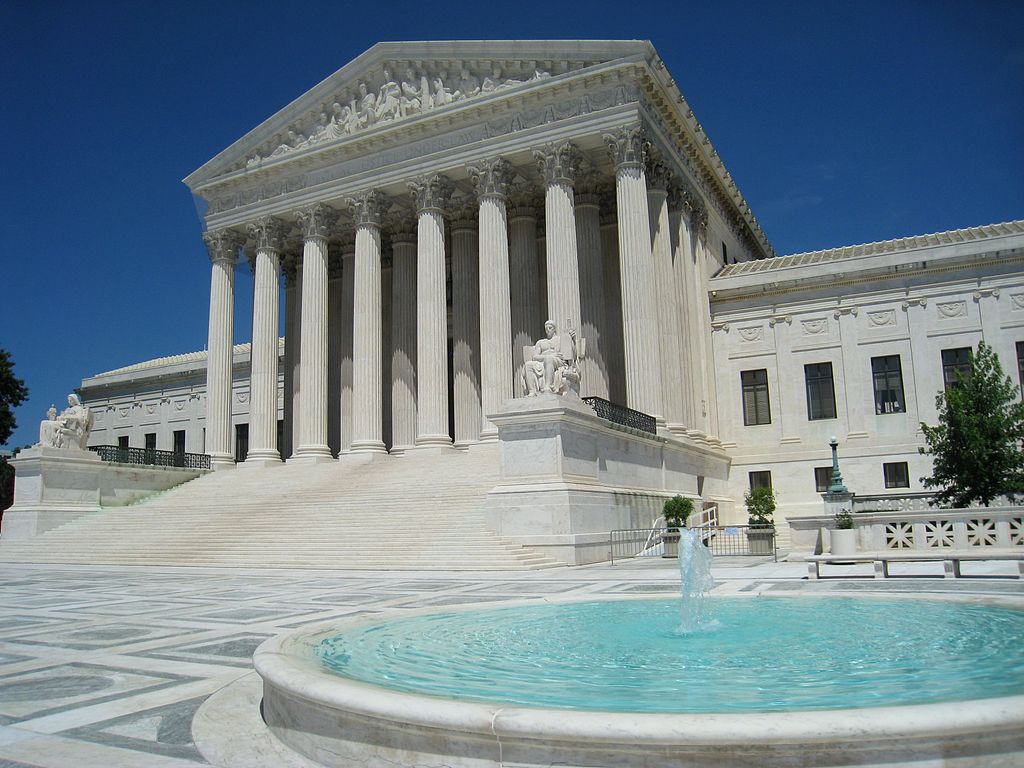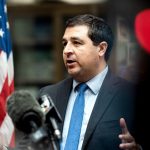Birthright Citizenship Stands in Wisconsin After Supreme Court Order
Kaul joins other attorney generals in seeking nationwide protection.
The right to birthright citizenship in Wisconsin remains in place despite Friday’s U.S. Supreme Court decision, which limited the scope of orders issued by federal courts.
Wisconsin was among the 22 states that sued earlier this year, after Republican President Donald Trump put out an executive order attempting to undo birthright citizenship. The order said, starting in mid-February of 2025, children born in the U.S. would not automatically be entitled to U.S. citizenship if that child was born to parents who were in the U.S. illegally or on a temporary visa at the time of the baby’s birth.
That’s despite the 14th amendment of the U.S. Constitution, which says “all persons born or naturalized in the United States, and subject to the jurisdiction thereof, are citizens of the United States.”
Multiple lower courts have blocked Trump’s anti-birthright citizenship executive order. And, in a 6-3 ruling released Friday, the U.S. Supreme Court did not undo the longstanding right to citizenship for people born in the country.
Instead, conservative justices took aim at what’s known as universal or nationwide injunctions. Those court orders have been used to block the federal government from enforcing certain policies against anyone in the country, rather than just against the specific parties that sued to challenge the policy.
“Universal injunctions likely exceed the equitable authority that Congress has given to federal courts,” the majority opinion written by Justice Amy Coney Barrett said.
Friday’s order blocks Trump’s anti-birthright citizenship order from taking effect in Wisconsin and 21 other plaintiff states.
In the remaining 28 states, the situation is more uncertain, although the Supreme Court has issued a stay, halting Trump’s order from taking effect for at least 30 days. That means birthright citizenship remains in place even in those states for the next month.
In the meantime, Josh Kaul and other Democratic attorneys general have pledged to go back to federal district court, and make their case for an injunction that would block Trump’s order in all states.
“I’m optimistic we will be able to establish that,” Kaul said in an interview with WPR on Friday afternoon. “But what this will mean going forward is that there is now sort of a framework in place for cases challenging actions of the federal government.”
If a national injunction isn’t granted, Kaul argues a patchwork system would create chaos in Wisconsin.
“People move from state to state,” he said. “(What) if, for example, there was somebody born in Iowa who was not granted citizenship because they were born in Iowa rather than Wisconsin? If they moved to Wisconsin, that would create administrative challenges for Wisconsin.”
Several immigrant-rights groups also filed class-action lawsuits on Friday, seeking broader enforcement of an order halting Trump’s directive.
Howard Schweber, a retired law professor at the University of Wisconsin-Madison, says it’s “extraordinarily unlikely” the U.S. Supreme Court would eventually nix birthright citizenship, which would overturn a century-and-a-half of legal understanding.
“I should say nothing today anymore is ironclad, but this feels pretty close,” Schweber said, adding the only way to get rid of birthright citizenship would be to amend the Constitution. “(Undoing birthright citizenship) purely came out of the heads of anti-immigration activists. And it is, I think, too radical even for conservative judges to contemplate.”
But Schweber said it’s possible birthright citizenship could be temporarily undone in some states before the Supreme Court issues a more definitive ruling.
“That’s what the dissenters were so freaked out about,” Schweber said, referring to a dissent from liberal justices. “The Supreme Court may not rule on the question of birth citizenship until next year … In that intervening year, the federal government (may be) perfectly free to go around arrest or deporting people who retrospectively will turn out to have been US citizens all along.”
Schweber says Friday’s U.S. Supreme Court decision to limit the use of nationwide injunctions could have implications on other cases, such as those brought by certain states to challenge the federal government over funding cuts.
“Politically, this is the Supreme Court giving the Trump administration a very, very big green light,” he said.
Birthright citizenship stands in Wisconsin, AG Kaul will seek nationwide order protecting it was originally published by Wisconsin Public Radio.
If you think stories like this are important, become a member of Urban Milwaukee and help support real, independent journalism. Plus you get some cool added benefits.























I like how these articles always soft pedal the implications of these dangerous court decisions made by the SCOTUS. Heck just look at the title, “Birthright Citizenship Stands in Wisconsin After Supreme Court Order”. If you didn’t know any better you would assume that the Court acted justly and must have ruled against Trump’s unconstitutional order. LOL guess again.